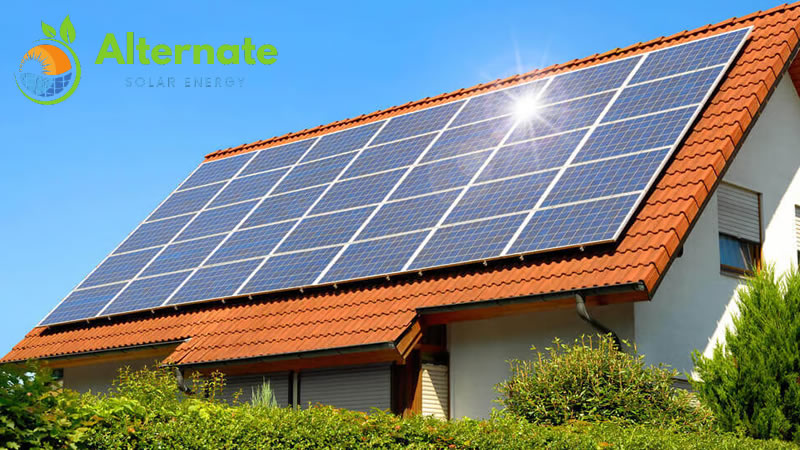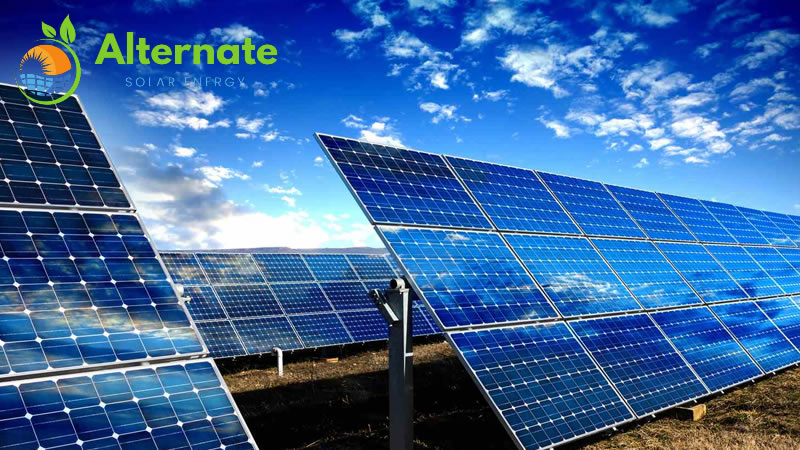Solar energy is rapidly gaining popularity as a clean, renewable energy source. With advancements in technology and a growing emphasis on sustainability, more homeowners and businesses are considering solar power as a viable option. This article, brought to you by Alternate Solar Energy, provides a comprehensive guide on the pros and cons of solar energy, helping you determine if it’s the right choice for your energy needs.
Key Takeaways
- Pros of Solar Energy: Renewable energy, reduced electric bills, energy independence, increased home resale value, long-term savings, low maintenance.
- Cons of Solar Energy: High upfront costs, dependence on sunlight, space constraints, expensive energy storage, installation challenges, environmental impact of manufacturing and disposal.
What Is Solar Energy?
Solar energy is harnessed from the sun’s rays and converted into electrical or thermal energy. Solar panels, composed of photovoltaic (PV) cells made from semiconductor materials like silicon, absorb sunlight. These cells convert photons from the sun into an electric current, which can be used to power homes and businesses.
Solar panels can be installed in locations with abundant sunlight, such as rooftops or open fields. The efficiency of energy production depends on the amount of sunlight the panels receive, making placement crucial.
Pros and Cons of Solar Energy
Advantages
- Renewable Energy Source: Solar energy is a sustainable alternative to fossil fuels, reducing reliance on non-renewable resources and minimizing environmental impact.
- Reduces Electric Bill: By generating your own electricity, you can significantly lower your monthly power bills. With electricity prices rising, solar energy offers long-term savings.

- Energy Independence: A solar-powered home, especially one with a battery system, can operate independently of the grid, ensuring power during outages and reducing dependence on external energy sources.
- Increases Home Value: Homes with solar panels typically have higher resale values. Every dollar saved on electric bills can increase your home’s value by $20, according to the National Renewable Energy Laboratory.
- Long-Term Savings: Although the initial cost is high, solar systems often pay for themselves within six to ten years, after which you can enjoy significant savings.
- Low Maintenance: Solar systems require minimal maintenance. Regular cleaning and occasional inspections are usually sufficient to keep them operating efficiently.
- Community Benefits: Through net metering, excess electricity generated can be sold back to the grid, benefiting both you and the community by reducing overall fossil fuel dependence.
- Versatile Applications: Solar energy can be used in a variety of settings, including remote areas, off-grid locations, satellites, and boats.
Disadvantages
- High Upfront Costs: The installation of a solar panel can be expensive, averaging around $18,000 before incentives and tax credits.
- Sunlight Dependent: Solar energy production is reliant on sunlight, making it less effective in areas with low sunlight or frequent overcast weather. Solar batteries can help store energy, but they add to the cost.
- Space Constraints: Solar panels require adequate space for installation. Finding sufficient space with optimal sunlight exposure can be challenging, especially in densely populated areas.
- Expensive Energy Storage: Solar batteries, necessary for storing excess energy, can be costly. Lithium-ion systems, for example, can range from $7,000 to $14,000.
- Environmental Impact of Manufacturing: The production of solar panels involves the mining of materials and manufacturing processes that emit greenhouse gases. However, these panels offset their carbon footprint within one to four years of use.
- Difficulty with Relocation: Solar systems are semi-permanent installations. Moving them to a new location can be complex and expensive, making them more suited as an investment in your current property.
- Scarcity of Materials: The materials required to produce solar panels are not infinite. The growing demand for solar technology could strain the availability of these materials, impacting future production.
- Limited Disposal/Recycling Options: While solar panels are recyclable, the infrastructure for large-scale recycling is currently inadequate, posing environmental concerns for the future.
Is Solar Energy Worth It?
Deciding whether solar energy is worth the investment depends on several factors:
- Costs: Consider the upfront costs of installation, potential savings on your electric bill, and available incentives or rebates.
- Location: Solar efficiency varies based on location. Areas with more sunlight will benefit more from solar energy.
- Incentives: Research local, state, and federal incentives, as they can significantly reduce the cost of solar installation.
- Net Metering: Check if your utility company offers net metering, allowing you to sell excess energy back to the grid.
Future Outlook
Solar energy is set to play an increasingly significant role in the global energy landscape. With the cost of solar panels decreasing and technology continuously improving, solar power is becoming more accessible to a broader range of consumers. As advancements continue, we can expect even greater efficiency and lower costs, driving the adoption of solar energy across the globe.

FAQs
What are the advantages of solar panels?
Solar panels offer renewable energy, reduce electricity bills, increase home value, and provide long-term savings with minimal maintenance.
How long do solar panels last?
Solar panels typically last between 25 to 30 years, with minimal maintenance required.
Do solar panels work in the rain?
Yes, solar panels work in the rain, but their efficiency is reduced. They can still generate electricity, though at a lower rate than on sunny days.
Do solar panels work in the winter?
Yes, solar panels work in the winter. Cold temperatures can actually improve their efficiency, though shorter days and snow cover can reduce overall energy production.
The advantages of solar energy outweigh the disadvantages for most consumers. While the initial investment can be significant, the long-term savings, environmental benefits, and energy independence make solar energy a worthwhile consideration. As technology advances and costs decrease, solar energy will likely become an even more attractive option for both residential and commercial users.
Ready to go solar? Contact Alternate Solar Energy to explore local incentives, get quotes, and take the first step towards a more sustainable future.










